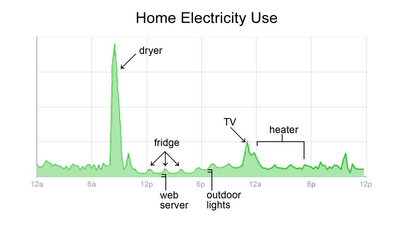It seems Google, has once again seen the writing on the wall and wants to be involved with some of the newest and most promising technologies. I wrote before about how they are promoting green tech, and now they are moving into smart grid technology.
People love to tinker. When the Prius came out with it’s real time MPG data displays people immediately began to find ways to maximize their millage, and hypermiling became a huge thing. With the advent of smart meters, people will be able to see exactly what parts of their home are using the most energy. I figure it is only a matter of time before having homes with super low energy usage (Hyperusage, or hyperhomeing or ultraefficent or whatever they want to call it) becomes a trend.

Google’s mission is to “organize the world’s information and make it universally accessible and useful,” and we believe consumers have a right to detailed information about their home electricity use. We’re tackling the challenge on several fronts, from policy advocacy to developing consumer tools, and even investing in smart grid companies. We’ve been participating in the dialogue in Washington, DC and with public agencies in the U.S. and other parts of the world to advocate for investment in the building of a “smart grid,” to bring our 1950s-era electricity grid into the digital age. Specifically, to provide both consumers and utilities with real-time energy information, homes must be equipped with advanced energy meters called “smart meters.” There are currently about 40 million smart meters in use worldwide, with plans to add another 100 million in the next few years.(via)
This is not just about smart meters, what Google is proposing is a full integration of open standards that will let everything in your home talk with any smart meter. In this way the toaster tells your home energy system how much it is using as does your computer your dryer, everything. Once all these appliances are talking to the system you will right away know what is going on and what thing is using the most juice. Perhaps this will spur appliances to attempt to use the least amount of electricity possible…do you really want to be the toaster that uses as much energy as 100 light bulbs? We can only hope that efficient is the new sleek desirable quality of home gizmos.